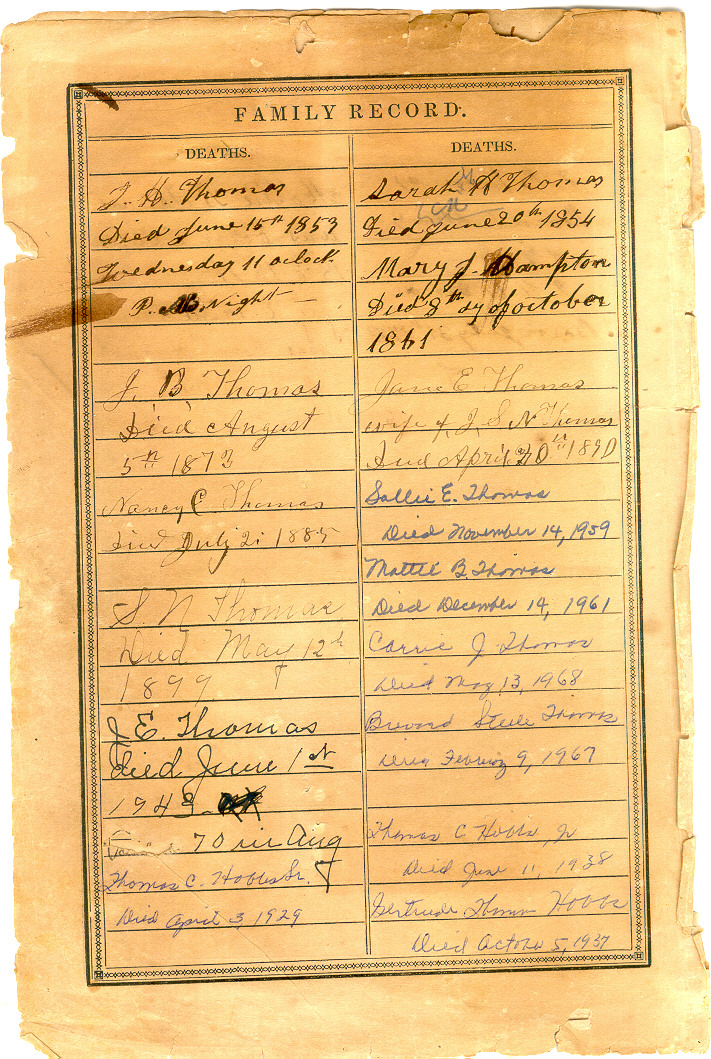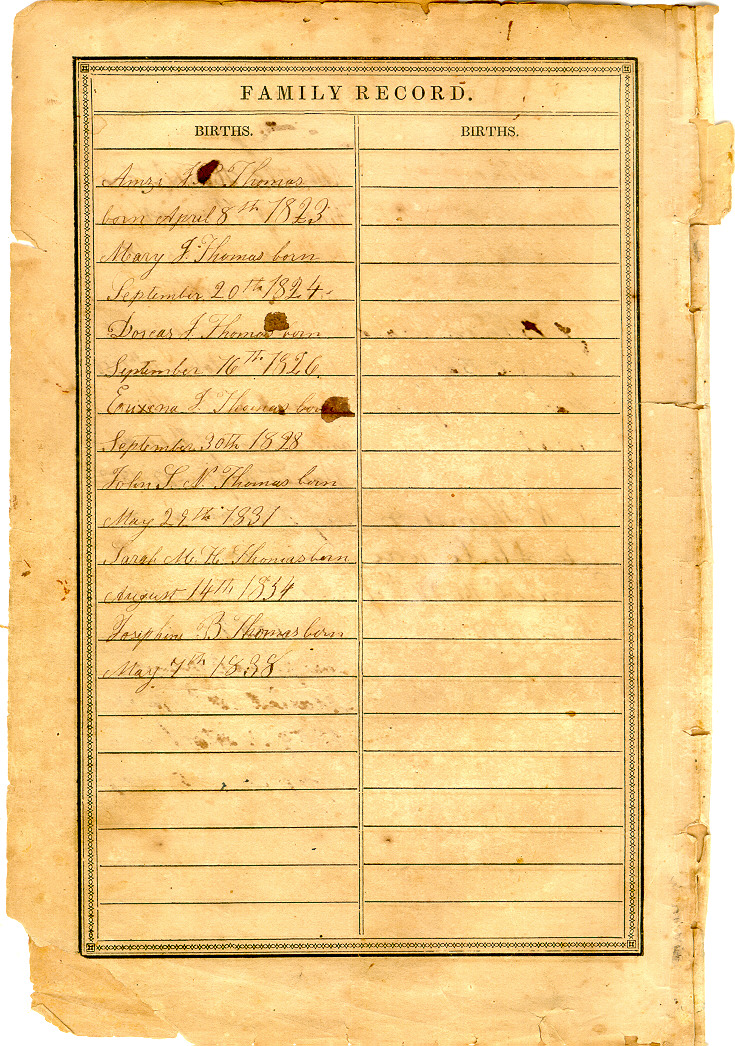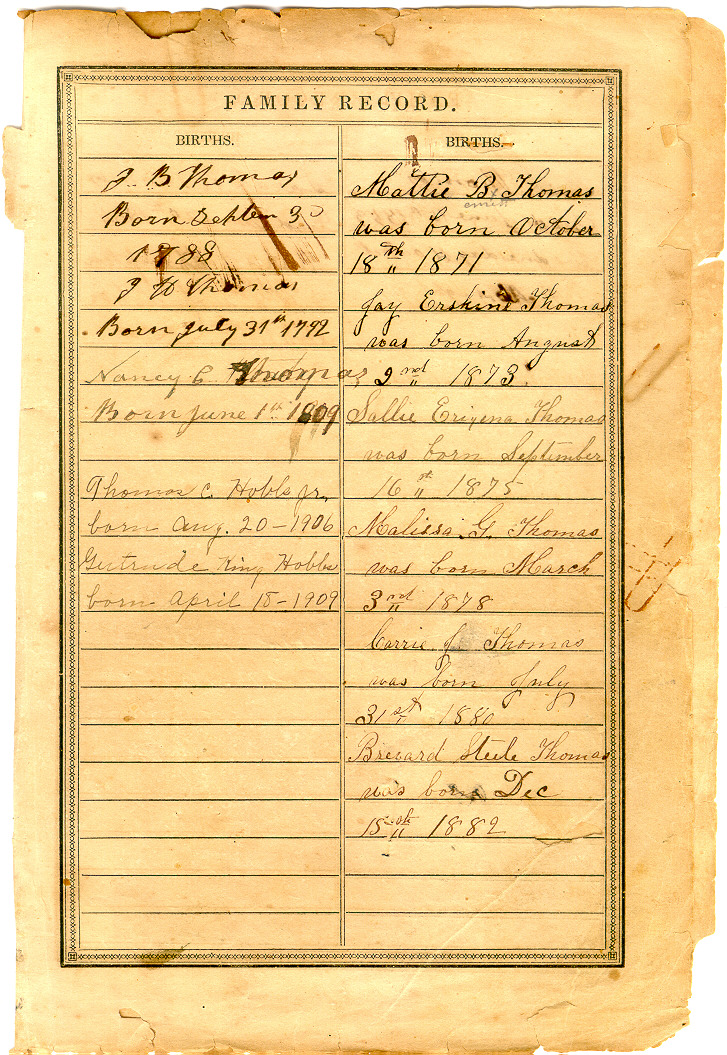Have you ever found yourself pondering the origins of the stories and figures we encounter in ancient texts, particularly those in the Bible? It’s a pretty common thought, actually. One question that often sparks curiosity is, "Who wrote Thomas in the Bible?" It seems like a straightforward query, yet the answer, like many things from long ago, is a bit more nuanced than you might initially think. We’re going to explore what "wrote" truly means in this context and look at the different ways Thomas appears in ancient writings.
You see, the idea of someone "writing" something, especially in ancient times, isn't always the same as how we picture an author today, sitting down with a pen and paper. The very meaning of "wrote" can be quite broad. For instance, as my text suggests, "The meaning of wrote is to form (characters, symbols, etc.) on a surface with an instrument (such as a pen)." So, when we ask who "wrote" Thomas, we're asking about the creation of the accounts involving him, and that can involve a whole lot of different hands and minds over time, you know?
This inquiry really touches on the nature of how ancient stories and traditions were preserved and passed along. It's not just about a single person putting words on a page. It's about a process, a collection of efforts that shaped what we now read. So, let's take a closer look at this fascinating question, considering both the Apostle Thomas in the canonical scriptures and other writings linked to his name, and how the act of "writing" itself was understood back then. It's quite an interesting journey, you might find.
Table of Contents
- Understanding "Wrote": A Look at the Action
- Thomas in the Biblical Narrative: Who Was He?
- The Gospel of Thomas: A Different Kind of Writing
- Why Authorship Matters in Ancient Texts
- People Often Wonder (FAQs)
- Conclusion
Understanding "Wrote": A Look at the Action
When we ask "Who wrote Thomas in the Bible?", the verb "wrote" is quite central, isn't it? It's the simple past tense of "to write." My text tells us, "Wrote is the simple past tense, It means the action was completed in the past." This is a key point because it means someone, or some group, finished the task of putting these narratives down. It's not an ongoing action; it was something that happened at a particular time, or across a series of moments, long ago. So, the act of forming characters and symbols on a surface, like "making letters or numbers on a surface, especially using a pen or a pencil," as described by the online Oxford, is what we're talking about.
What "Wrote" Really Means
Let's consider this word "wrote" a bit more deeply, shall we? My text clarifies that "Wrote is the simple past tense of to write." It also states, "The meaning of wrote is to form (characters, symbols, etc.) on a surface with an instrument (such as a pen)." This means the physical act of inscription. For example, "She wrote a letter to a friend of joao ribeiro's, a mathematics professor at cambridge called louis greig." This gives us a picture of someone actively putting words down. So, when we ask who "wrote" Thomas, we're really asking about who was responsible for that physical act of inscription, or perhaps, the composition that led to it. It’s about someone completing the action in the past, putting words or ideas into a permanent, readable form. You know, "To express or communicate in writing."
My text also points out that "written is the past participle of to write." It states, "written is never correct on its own." This distinction is important for clarity. "Wrote" directly describes the action someone completed, like "He wrote prolifically, publishing his ideas in books, pamphlets, magazines and newspapers." This shows a person actively creating texts. In the context of the Bible, this means someone actually put the words about Thomas down, or they dictated them to someone else who then "wrote" them down. It's the completed action of creating the text that matters here, that is that.
The Act of Writing in Ancient Times
The process of "writing" in ancient times was very different from our modern experience. It wasn't always a single author sitting at a desk, typing away. Often, it involved scribes, or perhaps even groups of people, preserving oral traditions or copying existing texts. A lot of ancient texts were composed over time, with various contributors. My text mentions, "To trace or form (characters, letters, words, etc.), esp, On paper, with a pen, pencil, or other instrument or means." This physical act was often specialized. So, when we ask who "wrote" about Thomas, it might refer to the person who originally conceived the narrative, or the one who physically inscribed it, or even later editors who compiled and refined existing accounts. It's a bit more complex than just one person, you know?
Consider that paper as we know it wasn't readily available. They used papyrus, parchment, or even clay tablets. The tools were different too. A scribe might use a reed pen and ink, or a stylus on clay. This means the act of writing itself was often slower and more deliberate. "Write your name on each page," my text says, giving us a simple example of this physical act. For ancient scriptures, this meant a painstaking process of transcription and preservation. So, the "writing" of biblical accounts, including those involving Thomas, was a significant undertaking, not just a casual scribble, actually.
Furthermore, authorship in ancient cultures often carried a different meaning. Sometimes, a text would be attributed to a famous figure to give it authority or to show that it reflected their teachings, even if they didn't personally "write" every word. It's not exactly deceptive, but rather a common practice of the time. This is something to keep in mind when we talk about who "wrote" anything from that era, including the narratives that feature Thomas. It’s a bit like saying a student "wrote" a paper even if they had help from a tutor in shaping their ideas, more or less.
Thomas in the Biblical Narrative: Who Was He?
Before we get into who "wrote" about him, let's briefly remember who Thomas was in the biblical context. In the New Testament, Thomas is known as one of the twelve apostles of Jesus. He's often called "Doubting Thomas" because of his skepticism about Jesus's resurrection until he saw and touched Jesus's wounds himself. This story is very vivid, isn't it? He appears in the Gospels, particularly John, and also in the Book of Acts. His appearances are rather significant for understanding his character and role among the disciples.
The Apostle Thomas in the Canonical Gospels
When we speak of Thomas "in the Bible," we are primarily referring to the canonical Gospels: Matthew, Mark, Luke, and John. These are the books that are widely accepted as scripture. But here's the thing: Thomas himself didn't "write" these Gospels. The Gospels are traditionally attributed to Matthew, Mark, Luke, and John, who were either apostles or close associates of apostles. These writers compiled accounts, testimonies, and traditions about Jesus's life, teachings, death, and resurrection, including the episodes involving Thomas. So, it's not Thomas who "wrote" his own story, but rather the evangelists who "wrote" about him.
For example, the famous account of Thomas's doubt and subsequent belief is found in the Gospel of John, specifically John 20:24-29. The author of the Gospel of John, traditionally John the Apostle, "wrote" this narrative down. They "wrote" it to convey a particular theological point about faith and eyewitness testimony. So, in this sense, it's the Gospel writers who "wrote" about Thomas, rather than Thomas himself being the author of these particular biblical passages. It's a subtle but important distinction, you know.
The Gospel of Thomas: A Different Kind of Writing
Now, this is where the question "Who wrote Thomas in the Bible?" gets a bit more complex, and perhaps, more interesting. Beyond the canonical Bible, there exists a significant ancient text known as the Gospel of Thomas. This text is not included in the standard Christian Bible, but it's a very important discovery for scholars studying early Christianity. It was found in 1945 as part of the Nag Hammadi library in Egypt, which was a collection of ancient manuscripts. This Gospel presents itself as a collection of sayings attributed to Jesus, some of which are similar to those in the canonical Gospels, while others are quite unique. It's a different kind of "writing" altogether, in some respects.
What is the Gospel of Thomas?
The Gospel of Thomas is a non-canonical gospel, meaning it's not part of the New Testament. It consists of 114 sayings attributed to Jesus, often introduced with phrases like "Jesus said..." Unlike the canonical Gospels, it doesn't really tell a narrative story of Jesus's life, death, or resurrection. It's more of a wisdom text, focusing on Jesus's teachings and cryptic parables. Its discovery provided a fascinating glimpse into the diversity of early Christian thought and the various forms of "writing" that existed in the first few centuries after Jesus. It’s a very different structure than, say, the Gospel of Mark, which is much more narrative-driven, you know?
The text itself is written in Coptic, but scholars believe it was originally composed in Greek. The existence of this Gospel raises fascinating questions about what was considered important enough to "write down" and preserve in early Christian communities. It suggests a broader range of texts were being circulated and read than what eventually became the official canon. So, while it's not "in the Bible" in the traditional sense, it's a very significant "Thomas" text that people sometimes refer to when asking about writings connected to his name, you know.
The Question of Authorship: Ancient Attributions and Scholarly Views
So, who "wrote" the Gospel of Thomas? This is where the complexities of ancient authorship truly shine. The text itself begins with the line, "These are the secret sayings that the living Jesus spoke and Didymos Judas Thomas recorded." This attribution suggests that Thomas, the apostle, was the one who "wrote" or recorded these sayings. However, most modern scholars do not believe that the Apostle Thomas himself literally "wrote" this Gospel in the sense of being its direct, single author. It's a bit like a book today being "by" a famous person, but actually ghostwritten, though the ancient context is different.
Instead, scholars generally believe that the Gospel of Thomas was composed much later, likely in the 2nd century CE, perhaps drawing on earlier oral traditions or written collections of sayings. The attribution to Thomas was probably a way to give the text authority and legitimacy, connecting it to an apostolic figure. This was a common practice in ancient times, where texts were often attributed to revered figures to signify their theological lineage or to suggest that the teachings contained within came from an authoritative source. It's not necessarily a forgery, but rather a different cultural approach to authorship than we are used to. So, while it claims Thomas "wrote" it, the actual process was more involved, apparently.
The actual "writing" process for the Gospel of Thomas likely involved multiple stages: an initial collection of sayings, perhaps an early Greek version, and then later translations and compilations. The individuals who physically "wrote" these versions were scribes and copyists, but the ultimate "author" in the sense of the original compiler or theological shaper remains unknown. This highlights how the verb "wrote" can have many layers of meaning when we look at ancient texts like this. It’s a rather interesting puzzle, isn't it? To learn more about ancient manuscripts on our site, and link to this page about the Nag Hammadi discoveries.
Why Authorship Matters in Ancient Texts
Understanding who "wrote" something, or how it came to be "written," is important for a few reasons when we look at ancient texts. For one, it helps us understand the historical context. Knowing when and where a text was composed can tell us a lot about the community that produced it, their beliefs, and their challenges. It helps us place the information in its proper time and place. This is crucial for accurate interpretation, you know.
Also, the question of authorship helps us evaluate the authority and reliability of a text. If a text is genuinely from an eyewitness, it carries a certain weight. If it's attributed to someone for theological reasons much later, it's still valuable, but its authority might be understood differently. This doesn't mean one is "better" than the other, just that we approach them with different questions. The letters they wrote to each other were so loving, showing the personal connection of direct authorship, which is different from a compilation, like your, similarly to, a collection of sayings attributed to a figure.
Google Trends shows that interest in biblical figures and ancient texts remains consistently high, with occasional spikes around new discoveries or popular media. People are genuinely curious about the origins of these stories. Analyzing "Who wrote Thomas in the Bible?" shows a clear informational intent. People want to know the facts and the historical context. It's about satisfying that natural human curiosity about where our stories come from, and how they were formed, which is a very human thing to wonder about, actually. We are always trying to connect with the past, aren't we? You can explore more about the Gospel of Thomas on Britannica, for instance.
People Often Wonder (FAQs)
Here are some questions people often ask about Thomas and ancient writings:
1. Was the Gospel of Thomas written by the Apostle Thomas himself?
No, most scholars do not believe the Apostle Thomas literally wrote the Gospel of Thomas. While the text attributes itself to him, it was likely composed much later, probably in the 2nd century CE, as a collection of sayings attributed to Jesus, with the name of Thomas added for authority or to indicate its connection to his teachings. It's a common practice for ancient texts to be attributed to a revered figure even if they didn't personally pen it, you know.
2. Why isn't the Gospel of Thomas in the Bible?
The Gospel of Thomas is not in the Bible because it was not included in the canon of New Testament scriptures established by early Christian communities. The criteria for inclusion involved apostolic authorship or connection, widespread acceptance, and theological consistency. The Gospel of Thomas, with its unique sayings and different theological perspectives, didn't meet these criteria for the broader Christian church, you know. It was seen as a bit different from the other accepted texts.
3. Who wrote the parts about Thomas in the canonical Gospels (Matthew, Mark, Luke, John)?
The parts about Thomas in the canonical Gospels were written by the traditional authors of those Gospels: Matthew, Mark, Luke, and John. These evangelists compiled accounts and traditions about Jesus's life and ministry, including the interactions and sayings involving Thomas. So, for example, the Gospel of John, traditionally attributed to John the Apostle, contains the famous story of "Doubting Thomas." It's their "writing" that preserved these narratives, in a way.
Conclusion
The question of "Who wrote Thomas in the Bible?" really opens up a fascinating discussion about how ancient texts were created and preserved. We've seen that the word "wrote" means forming characters on a surface, an action completed in the past, as my text clearly explains. However, in the context of ancient scriptures, authorship isn't always as simple as one person sitting down to write a book. For the Apostle Thomas in the canonical Gospels, it was the evangelists like John who "wrote" about his experiences. For the non-canonical Gospel of Thomas, while it attributes itself to him, scholars believe it was composed later, perhaps by various hands, to reflect teachings associated with his name. It's a rich and complex history, isn't it? Understanding this helps us appreciate the depth and layers of these very old and meaningful writings.
Related Resources:
Detail Author:
- Name : Nella Kovacek
- Username : hardy.rath
- Email : maribel76@hotmail.com
- Birthdate : 1983-09-17
- Address : 160 Cyril Viaduct Suite 569 Koelpinstad, NC 20835
- Phone : (425) 732-3397
- Company : Koch Group
- Job : Recruiter
- Bio : Eum sed et aspernatur neque laborum nisi. Eius quis qui doloribus accusantium. Placeat molestiae ut eligendi eaque similique voluptatem quidem.
Socials
linkedin:
- url : https://linkedin.com/in/ghuels
- username : ghuels
- bio : Similique aut ut omnis.
- followers : 5200
- following : 1117
tiktok:
- url : https://tiktok.com/@gordonhuels
- username : gordonhuels
- bio : Dolorem soluta quisquam corrupti aut dolor eius. Est qui aliquid voluptas et.
- followers : 5368
- following : 2106


